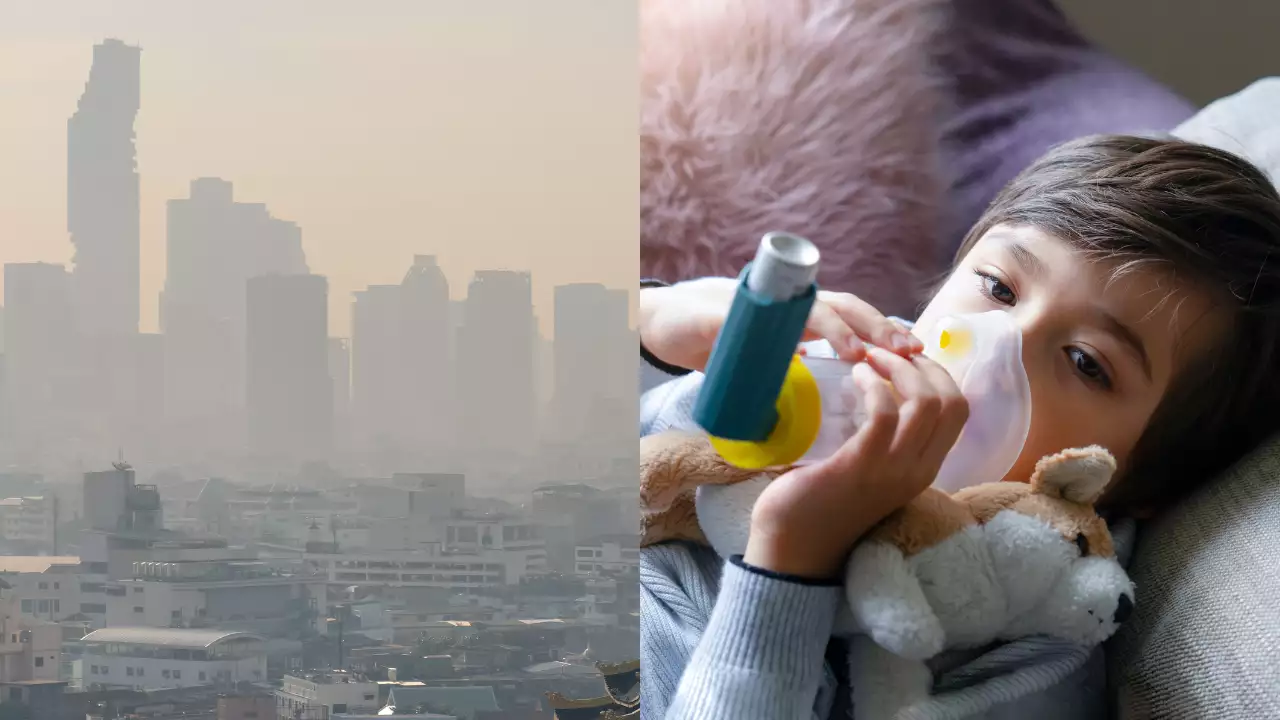Supriya Ramesh • 22 Dec 2024
Are Your Children Breathing Danger Every Day? Protect Them from Toxic Air Now!

Image - Canva
Breathing in toxic air is detrimental for everyone, but children are more vulnerable than other people. Young children, especially those between 0 and 5 years old, are at a higher risk from air pollution as their airways are small and still in a growing stage.
Their airways breathe fast and inhale more air relative to their size than adults do. Moreover, their immune systems are still maturing, increasing their susceptibility to the adverse effects of air pollution. Even indoors, pollutants can spread through, raising significant health risks for children.
Children often spend more time in outdoor activities that may increase their exposure to toxic air pollutants. “If children are grown up, inhaling toxic particles for a long period, it can disrupt the functioning of their lungs, raising their risk of having health issues like asthma, pneumonia, and bronchiolitis—an inflammation of the bronchioles,” Dr. Sanjeev Dutta, HOD and Sr. Consultant - Neonatology & Paediatrics, Marengo Asia Hospitals, Faridabad, says, adding that the lungs may fail to perform their normal function efficiently as they grow older.
Children may also have problems such as wheezing, coughing, and pneumonia. “In addition, children are more likely to develop chronic diseases like lung cancer and cardiovascular issues,” Dr. Dutta says.
Many might not be aware, but the indoor air quality is as unhealthy as outdoors. The smoke from the kitchen and inadequate ventilation can shoot up the level of pollutants in the air. “It is crucial to keep the air inside your home clean through air purifiers, cleaning your duct, filters, and keeping air-purifying plants inside the home,” he advises.
Do not let your children venture out when the air quality is in a severe state, especially during winters. “It helps significantly minimise their exposure to harmful pollutants. Refrain from construction sites and areas with high traffic congestion. If it is urgent to go out, make sure your kid wears a face mask all the time,” Dr. Dutta says.
Prenatal and early-life exposure to air pollution, Dr. Dutta says, can become the cause of developmental delays, affecting brain development and leading to cognitive and behavioural issues. “Improve indoor air quality with air purifiers, proper ventilation, and reducing indoor sources of pollution, like tobacco smoke, scented candles, cooking emissions, and certain cleaning products,” he advises.
Limit children's exposure to traffic-related pollution by opting for routes away from busy roads when walking or cycling. You may do outdoor activities in green, open areas where pollution levels are lower. Use public transportation, carpool, or choose eco-friendly vehicles to minimise emissions from personal vehicles. “Avoid smoking for the sake of your little one's health, as the tiny particles of the cigarette not only penetrate your lungs but are also absorbed by your baby's lungs. This can give rise to long-term health damage,” he concludes. Hence, it is crucial to make sure your child does not breathe in cigarette smoke after they are born.
Get Latest News Live on Times Now along with Breaking News and Top Headlines from Health and around the world.